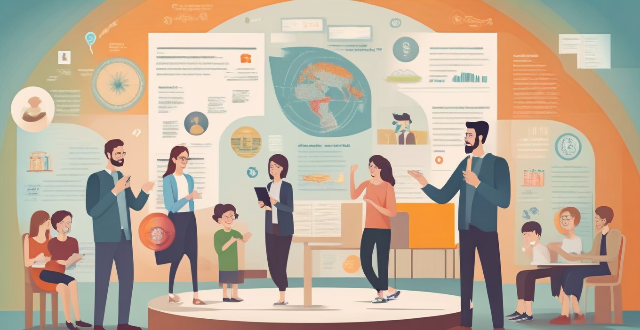The COVID-19 pandemic has significantly impacted academic integrity in the education sector, particularly due to the shift to online learning. The increased opportunities for cheating during online examinations and plagiarism are major concerns. Difficulty in maintaining academic integrity standards, potential for misunderstandings and miscommunications, and strategies to address these challenges are also discussed.

Impact of COVID-19 Pandemic on Academic Integrity
The COVID-19 pandemic has brought about significant changes in the education sector, particularly with the shift to online learning. This transition has affected various aspects of academic integrity. Here are some ways in which the pandemic has impacted issues related to academic integrity:
Increased Opportunities for Cheating
Online Examinations
One of the main concerns is the increased opportunities for cheating during online examinations. With students taking tests at home, there is a higher chance of them consulting external sources or collaborating with others. This can compromise the fairness and reliability of assessments.
Plagiarism
Another issue is the potential for plagiarism, as students may find it easier to copy and paste information from online sources without proper citation. The lack of supervision in an online environment can make it more challenging for instructors to detect such instances.
Difficulty in Maintaining Academic Integrity Standards
Proctoring Challenges
Maintaining academic integrity standards can be difficult due to proctoring challenges. In an online setting, it can be hard for instructors to monitor students effectively during exams. This can lead to situations where students feel they can get away with cheating or engaging in other forms of academic dishonesty.
Lack of Direct Interaction
The lack of direct interaction between students and instructors can also contribute to a decline in academic integrity. Without face-to-face communication, it can be harder for instructors to establish trust and rapport with their students, which are essential components of maintaining high standards of academic integrity.
Potential for Misunderstandings and Miscommunications
Misinterpretation of Assignments
With online learning, there is a potential for misunderstandings and miscommunications regarding assignments and expectations. This can lead to confusion among students, resulting in unintentional violations of academic integrity policies.
Difficulty in Providing Clear Instructions
Instructors may struggle to provide clear instructions and guidelines for assignments in an online environment. This can create ambiguity, making it challenging for students to understand what is expected of them, potentially leading to academic integrity violations.
Strategies to Address These Challenges
Implementing Robust Proctoring Tools
To address the increased opportunities for cheating during online examinations, educational institutions can implement robust proctoring tools that utilize technologies like webcam monitoring and AI-based detection systems. These tools can help ensure that students are not using external resources or collaborating with others during tests.
Encouraging Open Communication
Encouraging open communication between students and instructors is crucial for maintaining academic integrity standards. This can involve regular check-ins, office hours, and feedback sessions where students can ask questions and clarify any doubts they might have about assignments or expectations.
Providing Clear Instructions and Guidelines
Providing clear instructions and guidelines for assignments is essential to prevent misunderstandings and miscommunications. Instructors should strive to make their expectations explicit and provide detailed explanations of assignment requirements to minimize the risk of academic integrity violations.
Educating Students on Academic Integrity
Finally, educating students on the importance of academic integrity is crucial. This can involve discussions about the consequences of cheating, plagiarism, and other forms of academic dishonesty, as well as providing resources and support for students who may struggle with these issues. By fostering a culture of honesty and integrity within the educational community, institutions can work towards maintaining high standards of academic integrity even in the face of challenges posed by the COVID-19 pandemic.